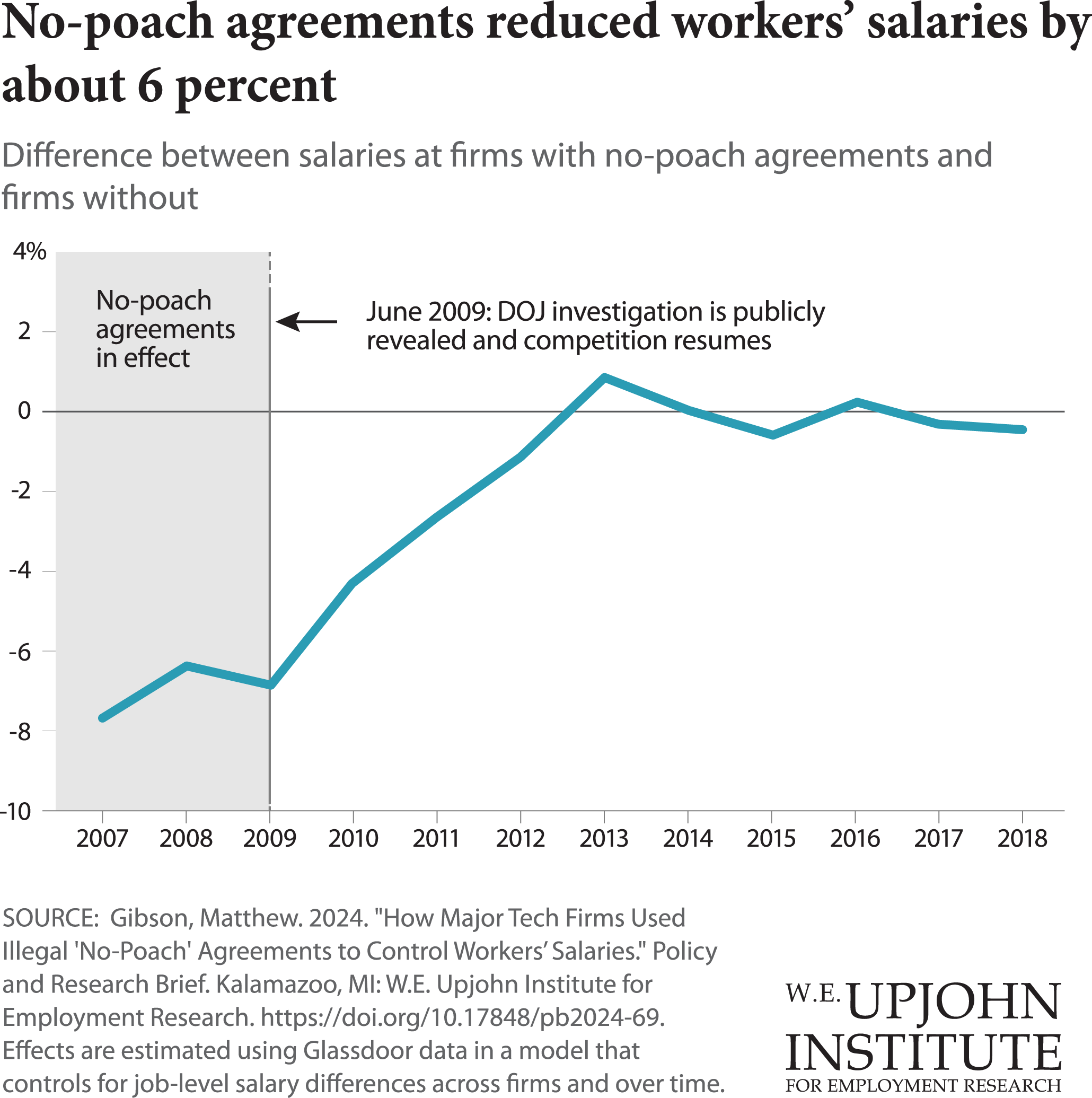
From at least 2005 through 2009, eight of the largest tech and entertainment firms secretly agreed not to recruit each other’s workers. Now, new research shows the impact these illegal “no-poach” agreements had on workers, including a roughly 6 percent reduction in earnings.
“No-poach agreements are hard to study because they’re usually illegal,” according to researcher Matthew Gibson, associate professor of economics at Williams College. “But these no-poach agreements among Silicon Valley firms—and the investigation that ended the agreements in 2009—provide a rare opportunity to measure impacts on workers.”
A U.S. Department of Justice investigation in early 2009 began to unravel the no-poach agreements, involving major firms including Adobe, Apple, eBay, Google, Intel, Intuit, Lucasfilm, and Pixar. Civil class action suits were filed in 2011, with settlements reached in 2015 and 2018.
Key Findings
This research compares employees at colluding firms and at other, non-colluding firms in similar sectors, before and after the no-poach agreements were suddenly dissolved by the DOJ investigation. Using data from Glassdoor, an online aggregator of salary reports and job ratings, Gibson estimated how these agreements affected salaries, stock bonuses, and job satisfaction. Highlights of his findings include:
- The agreements reduced worker salaries by approximately 6 percent—around $28,000 per affected worker over five years.
- Stock bonuses and job satisfaction both fell, particularly ratings for compensation and opportunities for advancement.
- Total worker losses were at least $3.1 billion, but colluding firms paid just $435 million in damages.

“With employer market power growing in many industries, it’s important to understand how such power can be abused,” Gibson concluded. “My analysis lends weight to calls for greater policy and research scrutiny of employer market power and its sources, including mergers, mobility constraints, information frictions, and noncompete clauses.”
Gibson’s research was supported by the Upjohn Institute’s Early Career Research Awards program. The program began in 2007 and has supported more than 200 scholars, furthering the institute’s mission of informing employment policy and practice with timely research.
